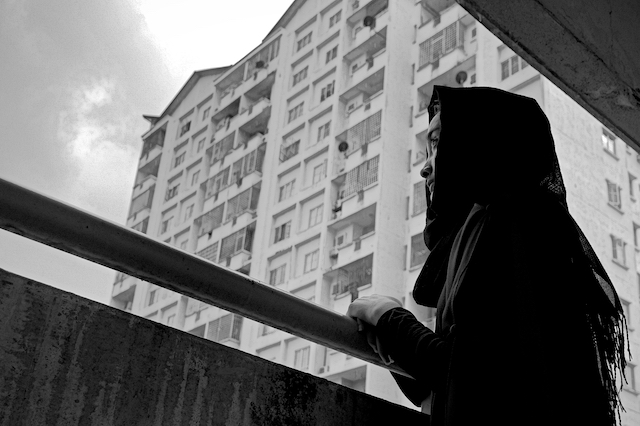Frozen Present: A Story of Resilience of Refugees in Malaysia

By Chiara Fabbro, Sona Circle Contributor (Insta: @Chi.fabb)
Zhara, Malika and Hussain are three young siblings. They live in a small flat in a 15 storey building in the suburbs of Kuala Lumpur, Malaysia. They are Hazara and come from Afghanistan, but they had to flee their home country as Hazara people are still facing ethnic and religious discrimination and persecution.
The three siblings are alone. In Kuala Lumpur, Hussain provides for his sisters by working in a bakery. He is 18, the eldest. A quote from a post he put up on social media reads “You never know how strong you are until being strong is the only choice you have.” His commitment and resilience are beyond moving.
Malika, the youngest, is really good with languages and often acts as an interpreter from Farsi to English for the others. She teaches English in kindergarten, in the local community centre for Afghan refugees, to kids aged four to five. ‘They are cute, but also a bit naughty’, she says laughing. She has the most infectious and sweet laugh you could imagine.
Zhara is a beautiful young woman, with a more reserved personality than her sister. She cooks delicious Afghan dishes that remind her of home and dreams of one day becoming a doctor.
In reality, Zhara, Malika and Hussain will need to fight for a chance to a bright future. Malaysia didn’t sign the 1951 Refugee Convention and it, therefore, doesn’t recognise the refugee status. Yet there are over 160,000 registered refugees in the country, and many more unregistered.
These are mostly Rohingya refugees who escaped from Myanmar, but other nationalities are present too – Syrian, Yemenis and Afghans amongst them. They aren’t allowed to work and cannot attend state schools, while the cost of private schooling is too high for all but a handful to afford. They rely heavily on UNHCR-issued ID cards for status. Under Malaysian law, they are liable to arrest or deportation, but showing this card provides some protection.
Since the refugees aren’t allowed to work legally they have no choice but to work off the books, with very low wages and no protection. Even worse, if they are found working by the police, they can be arrested or sometimes have to bribe them in exchange for turning a blind eye.
It’s a limbo – similar to asylum seekers awaiting a decision in Europe, the difference being, here it will last until Malaysia changes its policy relating to refugees.
The chance of relocation to a third country that could provide asylum is very slim. The USA is the main country of resettlement for this group and the chances of this happening have become increasingly slimmer in recent years due to the policies implemented by the Trump administration.
This is an everyday reality for tens of thousands of refugees in Malaysia, barely allowed to exist, let alone fight for a better future.
They are trapped between a painful past and a bleak tomorrow, far from home, they rely only on their incredible resilience, in a present that feels like it’s frozen.